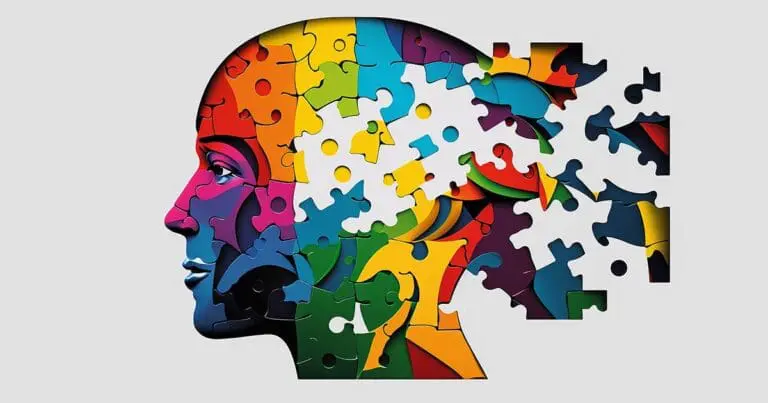How Generative AI Is Changing SEO and How Marketers Can Keep Up

Traditionally, SEO practices were built for indexing-based search engines like Google, which relied on search engine algorithms to rank content based on target keywords, backlinks, and other technical factors.
However, more recently, Generative AI tools like ChatGPT, Perplexity, and Gemini represent a seismic shift.
These AI-driven search engines deliver direct answers instead of directing users to lists of links, reshaping the very nature of online content discovery.
Whether you’re a marketer or someone looking to hire a marketer, it’s important to understand what this means for content marketers, and actionable steps to adapt your SEO strategies to remain competitive.
The Rise of Generative AI as a Search Tool
The rise of generative AI as a search tool has been largely due to shifting consumer behaviors, generative search versatility, as well as the major players of Gen AI and the way they find and deliver content.
Shifting Consumer Behaviors
Users are increasingly turning to generative engines for comprehensive responses tailored to specific needs, rather than clicking through multiple links on traditional search engines.
As a result, understanding user intent is becoming more nuanced and essential for content creation.
Marketers must now optimize for AI-powered search engine preferences to maintain content visibility.
Generative Search Versatility
Generative AI is proving invaluable across a wide array of use cases—everything from product comparisons and travel planning to code generation and B2B research.
These tools use deep learning and natural language processing to understand user queries and deliver comprehensive answers.
This flexibility has made generative tools essential in the content creation process, capable of meeting user experiences at different points in their journey.
Major Players of Gen AI
The key players transforming the search landscape include OpenAI’s ChatGPT, Google’s Gemini and Search Generative Experience (SGE), Microsoft Copilot, Meta AI, and Perplexity.
These AI-generated results vary in format and depth but all signal a move toward relevant responses derived from a mix of authoritative sources and real-time input.
Their presence in the market is redefining what content optimization means.
Finding and Delivering Content
The way content is discovered and delivered is shifting from search engine visibility to AI curation.
Generative tools prioritize content quality, relevant content, and contextually rich language model outputs.
This reduces reliance on external links and increases demand for SEO-friendly content that AI systems trust.
Brands must now focus on producing High-quality content that addresses user intent and aligns with emerging search trends.
How Does Generative AI Affect SEO?
Generative AI affects SEO because of keyword-first strategies not being futureproof, declining click through rates, and prioritizing depth and authority.
Keyword-First Strategy Isn’t Futureproof
Outdated methods like keyword stuffing are no longer viable in an AI-first world.
Generative engines evaluate content through semantics, clarity, and content quality, rather than just matching target keywords.
This means SEO must evolve beyond keyword research tools and focus on deeper topic coverage and valuable insights.
The emphasis is now on delivering contextually rich, relevant sources that AI trusts.
Declining Click Through Rates
As AI-generated results give users comprehensive answers instantly, the number of click-through rates from organic traffic is declining.
These “zero-click” answers reduce the need for users to visit websites, impacting traditional SEO performance.
To mitigate this, marketers must enhance their content visibility through branding, content at scale, and Generative Engine Optimization.
Prioritizing Depth and Authority
Search engine algorithms are now placing more emphasis on content that demonstrates topic depth and brand authority.
Shallow posts packed with long-tail keywords no longer stand out; instead, high-quality content built with human oversight and expert insight ranks better.
This requires a focus on in-depth content strategies rather than surface-level digital content.
What Does Generative AI Prioritize in Content?
Below learn what content AI trusts most, how AI finds sources, and why AI loves connected content to better understand what generative AI prioritizes in content.
Content AI Trusts Most
To appear in AI responses, your content must meet certain thresholds: it must be clear, original, factual, and demonstrate authority.
AI tools favor content generation that avoids fluff and delivers valuable insights that align with user behavior and needs.
Establishing trust through human creativity and credible sourcing is crucial for SEO teams.
Content that resonates with user engagement and intention wins in the new Generative Experience.
How AI Finds Sources
AI-powered search engines synthesize content from their training data and from crawling authoritative sources, including academic journals and trusted publications.
They assess content quality based on structure, reliability, and online presence.
This makes it essential for marketers to publish fact-checked, relevant content that AI tools can easily identify as credible.
Building a portfolio of trustworthy content increases your likelihood of being cited in AI-generated results.
AI Loves Connected Content
AI models value SEO-friendly content that is part of an interconnected ecosystem, with clear semantic relationships and topical depth.
Structured content optimization using internal linking, pillar pages, and topic clusters helps boost relevance in search engine algorithms.
This architecture aids in aligning with how AI-driven search engines crawl and understand online content.
Such content strategies enhance your chances of appearing in both AI responses and search rankings.
5 Action Steps for Marketers to Adapt to Generative Engine Optimization
- Double Down on Thought Leadership and Original Research
- Create Content Ecosystems, Not Just Blog Posts
- Optimize for AI Summarization and Citations
- Strengthen E-E-A-T (Experience, Expertise, Authority, Trust)
- Learn Prompt Engineering and AI-Driven Content Tools
1. Double Down on Thought Leadership and Original Research
Original thought and exclusive data are now among the most valuable forms of content.
Human creativity, case studies, and valuable insights set your content apart from what Generative AI can synthesize.
Consider publishing white papers or first-party surveys to inject new perspectives into the conversation.
2. Create Content Ecosystems, Not Just Blog Posts
Build out your site using pillar-cluster models to support SEO strategies that reflect topic authority and depth.
This not only helps user engagement but also improves how AI systems contextualize your brand.
Strategically interlinking your digital content enhances search engine visibility and helps address varied user intent.
Structured content makes your site easier to crawl and understand.
3. Optimize for AI Summarization and Citations
Use subheadings, bullet points, and direct answers to make your content easily digestible for AI-powered search engines.
These features improve the odds that your content will be quoted or referenced by generative engines.
Formatting for readability improves both bounce rates and inclusion in AI summaries.
It’s not just about being found—it’s about being cited.
4. Strengthen E-E-A-T (Experience, Expertise, Authority, Trust)
Build your online presence with detailed author bios, transparent sourcing, and clear credentials to establish authority.
Incorporate relevant sources, customer success stories, and real-world use cases to build trust.
This enhances your credibility in both human and AI evaluations of your content.
Prioritizing human oversight and transparent expertise is more important than ever.
5. Learn Prompt Engineering and AI-Driven Content Tools
Marketers should understand how to use tools like ChatGPT, Jasper, Frase.io, and Surfer AI to optimize the content creation process.
Learning prompt engineering helps you better navigate and influence Generative AI outputs.
These skills enhance your ability to create SEO-friendly content efficiently.
As AI plays a growing role in marketing, integrating these tools into your workflow is a necessity.
How Does Generative Engine Optimization Impact Marketers’ Career Paths?
Generative Engine Optimization (GEO) impacts marketers career paths because of in-demand new skills, the growing need for cross-discipline training, and being able to showcase AI adaptability.
In-Demand New Skills
As the field evolves, demand is rising for professionals skilled in AI content strategy, technical SEO, and prompt engineering.
The ability to analyze search patterns, create relevant content, and optimize for Generative Experience is now a competitive advantage.
These skills allow marketers to align with new search engine algorithms and provide relevant responses to modern queries.
Growing Need For Cross-Discipline Training
Today’s marketers must understand not only content but also UX, analytics, and content operations to drive better outcomes.
Cross-disciplinary knowledge helps teams align content with user interactions and improve conversion rates.
Familiarity with various platforms enhances your ability to execute successful digital marketing campaigns.
Being Able to Showcase AI Adaptability
To stay relevant, marketers must communicate how they’ve adapted to the rise of Generative AI.
Whether in interviews or on LinkedIn, highlight how you’ve updated your SEO strategies and embraced advanced algorithms.
Mention the tools you use and the human oversight you bring to AI-enhanced content creation.
Demonstrating this agility boosts your credibility and marketability.
Leveraging Generative AI for Advanced SEO
Search Engine Optimization is not disappearing—it’s evolving into a more dynamic, AI-integrated discipline.
While AI-powered search engines may alter how people find information, the demand for high-quality content and authoritative sources remains.
By embracing Generative Engine Optimization, marketers can maintain relevance and grow organic traffic in an AI-first world.
Looking for your next Marketing gig? Let us help.
Every year, Mondo helps over 2,000 candidates find jobs they love.
More Reading…
- The Freedom of Contract vs. Full-Time: Which Fits Your Career Goals?
- What’s The Difference Between CSR and ESG—and Why it Matters
- College Graduation Season: Entry-Level Hiring Tips for Attracting New Grads
- How To Grow a Small Business: Tips, Tools, and Pitfalls
- The Future of Cybersecurity Hiring Trends: Post-RSA Conference 2025
- The Decline of Prompt Engineering and the Future of Other AI Jobs
- 10 Types of Graphic Design: Why Specialization Matters
- Why Chasing the Top 1% of Talent Is Holding You Back
- What’s the Difference Between Being a Boss vs. Being a Leader?
- Why Networking Is the Best Way to Land Your Next Job: Success Stories
- Greener Intelligence: How Companies Can Implement AI Sustainably



